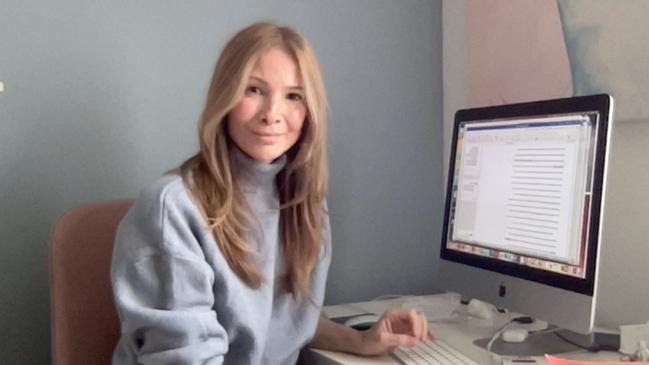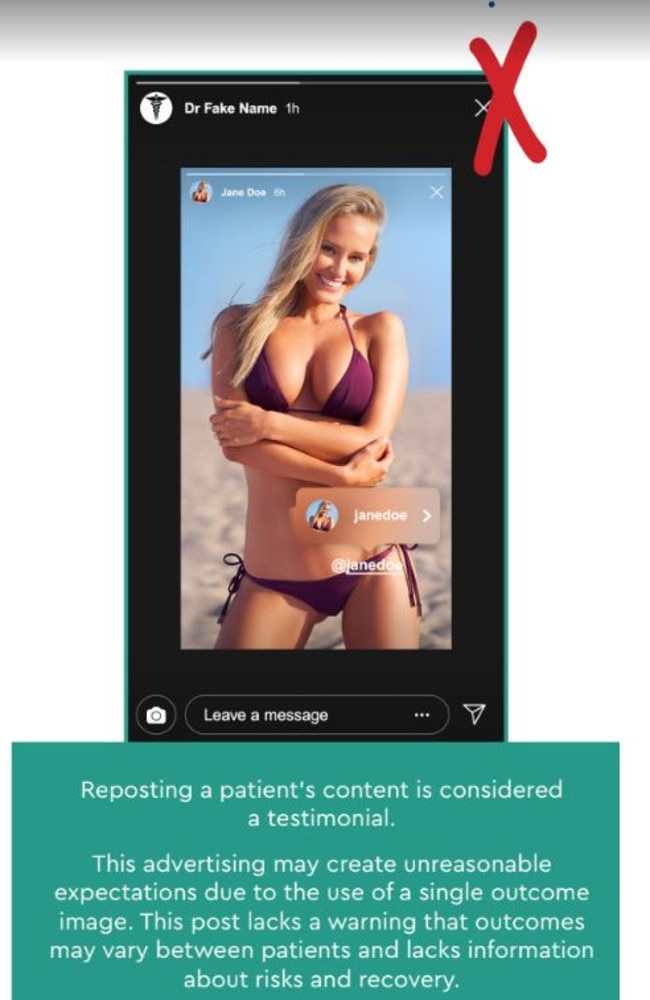Australia’s medical watchdog cracks down on ‘built on TikTok’ surgery practices
A renowned plastic surgeon is warning a cosmetic surgery crackdown by the Australian medical watchdog may not go far enough.
QLD News
Don't miss out on the headlines from QLD News. Followed categories will be added to My News.
A renowned plastic surgeon says cosmetic surgery practices “built on Tiktok” will not survive the latest cosmetic crackdown brought on by Australia’s medical watchdog but warned some new measures “didn’t go far enough” and dodgy operators would still fall through the cracks.
The new cosmetic surgery guidelines introduced by The Australian Health Practitioner Regulation Agency (AHPRA) in July are aimed at stopping the glamorisation of cosmetic surgery, bringing it in line with elective surgery standards.
Anyone seeking a cosmetic procedure, both surgical and non-surgical, will be screened for signs of psychological distress, including body dysmorphic disorder, and those who exhibit red flags will be referred to a psychologist before being allowed into surgery.
Those wanting to go under the knife will be required to see an independent general practitioner for referral.
While the new guidelines received widespread praise, experienced plastic surgeon Garry Buckland expressed concern that each clinic was responsible for adopting their own metal health screening process, rather than a universal adoption of a single standard test.
“The whole idea is to screen out that potentially vulnerable patient and protect them from potential downsides to inappropriate or unnecessary surgery,” he said.
“AHPRA have said you need to use a psych tool, but they haven’t said which tool we should all be using.
“We’ve certainly approached AHPRA and they’re not going to change the process.
“They had an opportunity here to make a really big difference and I don’t think they’ve gone far enough.”
Cosmetic surgery clinics have also been banned from glamorizing procedures on social media and resharing patient posts, or using their testimonials as a form of advertisement.
Social media posts showing cosmetic related topics were restricted to audiences aged 18 and over and use of inflationary language such as “our unique technique,” and colloquial terms like “tummy tuck” have also been banned.
The crackdown comes after AHPRA received concerning reports about poor practices and outcomes in cosmetic surgery, and inexperienced practitioners offering them.
An independent review conducted by AHPRA found tactics employed by some practitioners, particularly on social media, actively encouraged people to pursue certain body types using models and influencers.

Last year, Griffith University Professor Veya Seekis conducted Australia’s first in-person study of the relationship between social media and body dysmorphic disorder in young women.
She discovered digitised dysmorphia was driven by the amount of filters available on the apps and was directly correlated with cosmetic surgery consideration, and that just seven minutes of exposure to beauty content led to increased feeling of body shame and anxiety among women.
Dr Buckland said the AHPRA changes would definitely weed out dodgy practitioners, and he suspects clinics who built and based their businesses on social media platforms Instagram and Tiktok would struggle to survive under the new strict advertising conditions.
“Psychologists will tell you around 20 per cent of people seeking cosmetic surgery will have signs of body dysmorphia,” he said,
“That figure will change between different practices with different demographics and mine is well-established, so I don’t see a lot of young girls seeking inappropriate or unachievable procedures.
“I also have no social media presence, which makes me think someone whose practice is built on Instagram or TikTok, they will have higher incidences of vulnerability.”

A spokesperson for AHPRA and the Medical Board of Australia said the changes had already led to significant improvements on social media including surgeon’s providing proof of their qualifications online.
“Many practitioners have also turned off the comments feature on their Facebook or Instagram to ensure that patients don’t leave illegal testimonials on their advertising,” they said.
“Information about surgical risks and different outcomes for different people have improved for many practitioners although there is still some further improvement needed in some cases, this is a step in the right direction.”
Griffith University psychology student Taliya Thompson, who assisted Dr Seekis in her landmark study, has started researching exactly how face filters and cosmetic promotion on social media impact cosmetic surgery desires in women.
She said cosmetic surgery had become too normalised on social media, with posts consistently glossing over health and financial risks, saying promotions were “really in your face”.
“I remember thinking at 13, it’s okay if I get wrinkles I’ll just get Botox,” she said.
Ms Thompson hopes her PhD studies will provide better insight to cosmetic surgery trends in Australia, but she believes the “Kylie Jenner effect” has contributed to unrealistic ideals about cosmetic surgery and attitudes in Australia towards cosmetic surgeries were loose and uninformed.
“When you go into the clinics they have all these photos of celebrities and they’re like who do you want to look like,” she said.
“We used to make those upward comparisons to celebrities, I mean just look at Kylie Jenner’s change, but now it’s about your idealised version of yourself, which is so scary because that’s you right there and you’re saying it’s not enough.
“It’s not only detrimental to health but also financially damaging because what if one week you can’t afford it and your mental health declines?”
“$3b is spent on cosmetic surgery every year in the US and there have been cases in America where cosmetic surgeons have been killed over (surgery) results.”
Under the new guidelines, surgical procedures including breast augmentation, abdominoplasty, rhinoplasty and liposuction will require a referral from a general practitioner.
Those seeking non-surgical and injectables such as Botox, fillers, thread lifts, chemical peels and laser hair removal will still undergo a mental health screen, but this can be provided by the cosmetic surgeon, who must also record their screening test.
APHRA has also declared that Botulinum toxin and dermal fillers should not be prescribed for patients under the age of 18 for cosmetic purposes, meaning surgeons who provide these procedures.
Patients aged under 18 considering any cosmetic surgery must be independently evaluated by a psychologist or psychiatrist.
Cosmetic surgery practitioners or practices found in breach of the new guidelines could face a tribunal with maximum penalties including suspension or the cancellation of a practitioner’s registration.
More Coverage
Originally published as Australia’s medical watchdog cracks down on ‘built on TikTok’ surgery practices



